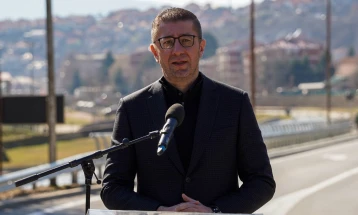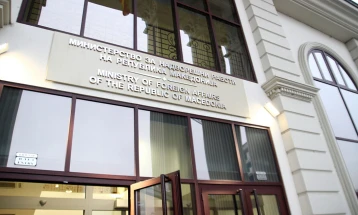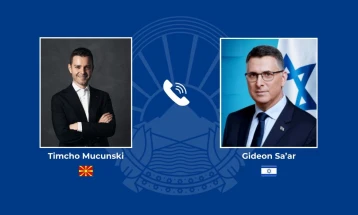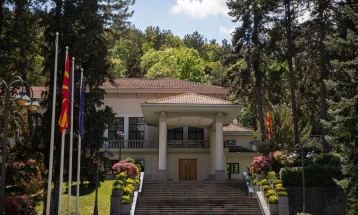WHO reports concerning rise in unprotected sex among adolescents across Europe, including North Macedonia: PHI
- A new report from the World Health Organization (WHO) reveals high rates of unprotected sexual intercourse between adolescents across Europe, including North Macedonia, with significant implications on health and safety. The report states that condom usage among sexually active adolescents deceased significantly from 2014, and the rates of unprotected sexual intercourse are worryingly high, the Public Health Institute (PHI) said on Thursday marking September 26 - World Contraception Day.

Skopje, 26 September 2024 (MIA) - A new report from the World Health Organization (WHO) reveals high rates of unprotected sexual intercourse between adolescents across Europe, including North Macedonia, with significant implications on health and safety. The report states that condom usage among sexually active adolescents deceased significantly from 2014, and the rates of unprotected sexual intercourse are worryingly high, the Public Health Institute (PHI) said on Thursday marking September 26 - World Contraception Day.
"This puts young people in significant risk of sexually transmitted infections and unplanned pregnancies. The new data was published as part of a Health Behavior in School-aged Children (HBSC) study, which surveyed over 242,000 15-year-olds across 42 countries and regions between 2014–2022, including adolescents from North Macedonia," PHI states.
Key findings suggest that there is a decrease in condom use of sexually active adolescents from 70 to 61 percent among boys and 63 percent to 57 percent among girls between 2014 and 2022.
"High rates of unprotected sex - around a third or 30 percent of sexually active adolescents did not use a condom or a contraceptive pill at last sexual intercourse. Adolescents from North Macedonia are in fourth place. Socio-economic discrepancies- adolescents from low-income families were more likely to report using neither condom nor pill at last sexual intercourse (33 percent), compared to those from affluent families (25 percent)," the report reads.
Use of contraceptive pills remained relatively stable from 2014-2022, with 26 percent of 15-year-olds reporting that they or their partners used contraceptive pills during intercourse.
"Findings highlight the importance of comprehensive sexuality education and resources for young people. It is vital for teenagers to have access to correct information on sexual education in order to make the right decisions regarding their health," PHI notes.
According to the report, there is a need for open dialogue - encouraging open and honest conversations about sexual health within families, schools, and communities to reduce stigma and increase awareness. Training educators and providing specialized training for teachers and healthcare providers to ensure effective and inclusive sex education. Such resources should be made available in and outside schools.
PHI adds that a memorandum of cooperation was signed with NGO HERA with the aim of creating a web-page kontracepcija.mk, where young people can get expert and correct answers to their questions, get information on sexual and reproductive health from right sources, and learn about contraceptive methods as efficient protection from unplanned pregnancies, and taking care of their health. ssh/ik/
Photo: kontracepcija.mk







